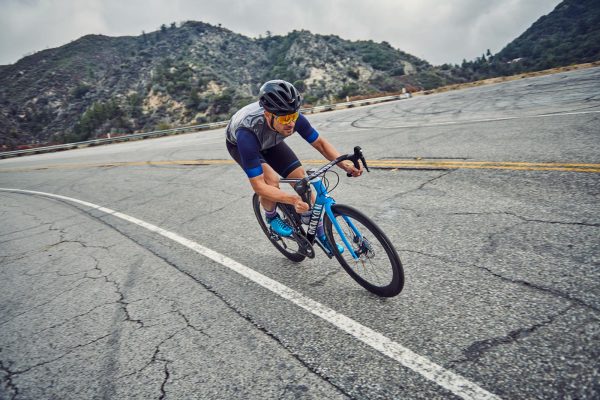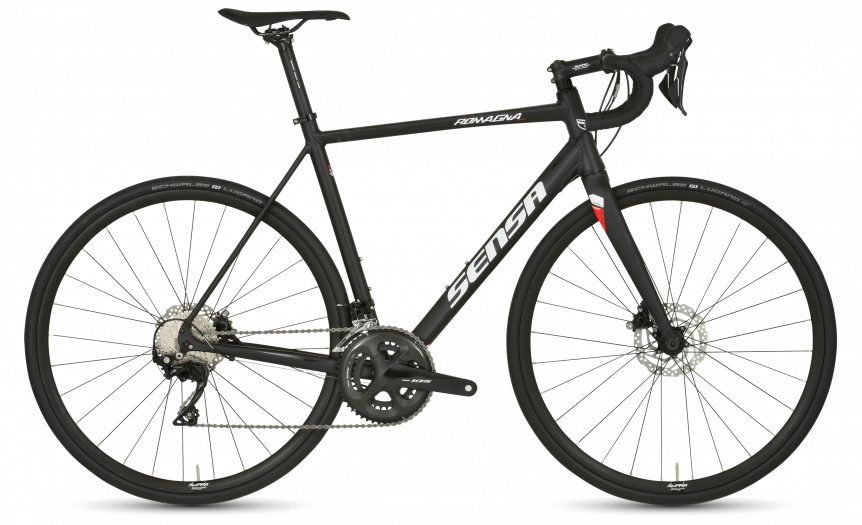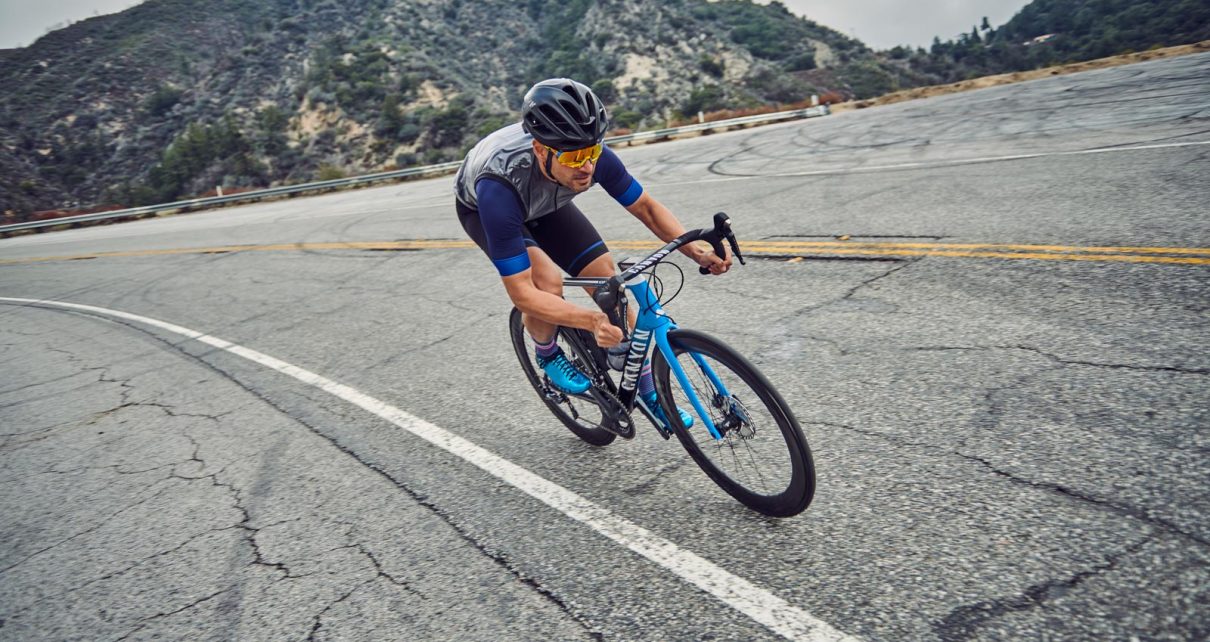Strava’s strength is in its scale: more than 50 million athletes across a number of different sports use the platform to track where they’ve gone, how fast they went there, and how it made them feel. In the process, a digital mountain of data is accumulated – data that can inform advocacy, track active transportation, and improve infrastructure.
But for many users, the use of Strava is less idealistic – people mostly want to track their exercise and know whether they’re getting fitter and faster. And if we’re talking ‘faster’, then equipment matters.
In December, Strava published its annual Year in Sport report, which analysed all of 2019’s activities and presented them in a snappy, easily digestible format. Hidden down in an appendix of that document was a list of the top five fastest bikes on Strava. Somewhat unsurprisingly, these were all triathlon and time trial bikes, but I got to wondering: what were the fastest road bikes of 2019?
So, I asked.
After a fair bit of back and forth over the past couple of months, working out the parameters to filter all of those millions of activities, Strava came through with a list, exclusive to CyclingTips. Many of the bikes featured aren’t all that surprising, but I’m happy to report that there’s at least one fascinating outlier to keep you on your toes.
Let’s dive in.
The parameters
Strava’s data is big, but in this instance, it wasn’t particularly tidy. That is in no way intended as a slight: when you’re dealing with 9.01 billion kilometres of cycling activities from millions of users over an entire year, you have to approach a task like this with broad strokes.
That means paring down all those data points to as usable and clean a list as possible, and removing the things that might skew it. Here’s how we chopped it.
Numbers: For a bike to be counted here, it needed to be ridden by at least 500 distinct users on that model. That may mean there’s a super speedy artisanal aero bike out there that is owned by a select handful of blisteringly fast riders, but you won’t find it in this list.
It also means that each of those users needs to have the bike entered into Strava in the same way. Under the ‘Gear’ section of your Strava settings, when you add a bike you can nominate a publicly shown name, and then below that a brand and a model.
This list shows the brand and model, which eliminates the jokey or bike-theft-resistant names that people might have set for the public profile view of their bikes (‘Black Beauty’, or whatever) and probably gets the actual model name right (albeit with some ambiguities around Specialized versus S-Works, Propel versus Propel Advanced etc.)
There’s no way to filter for which generation of a bike the rider is referring to, so a ‘Specialized Venge’ could conceivably be from any one of three designs that have been given that name over the best part of a decade.
Location: Some places are hilly. Some places are flat. That’ll have an influence, but generally speaking – with one notable exception – that should all come out in the wash, especially on bikes sold globally. Strava also excluded races, commutes, indoor rides and virtual rides from the list, to allow for a truer picture of what a given bike’s performance is in real-world riding conditions.
A note on averages: These are all calculated on ‘median speed’ rather than a mean average. The reasoning behind that from Strava’s end is that it reduces the influence of factors like riders forgetting to stop their activity, putting their bike in the car and driving home post-ride.
Real world numbers
Every road bike manufacturer worth their salt presents a new model with a barrage of claims around how much faster you’ll be over a 40 km time trial at 48.1 km/h and at zero degrees yaw. Which is fine, and maybe even perceptible, but the problem is that most bike manufacturers use their own testing methodologies and maybe even (whisper it) present data in a way that’s as sympathetic to them as possible.
But when you get millions of cyclists out into the real world, you don’t get a slickly optimised view of a bike’s potential brilliance. You have cyclists of different shapes and sizes, contending with terrain and traffic and wind and weather, on whatever bike they’ve paid for out of their own hard-earned money.
From a statistical perspective, that doesn’t make for clean data in a rigorous and aerodynamicist-approved sense. But it sure as hell makes for a fascinating list.
Without further ado, these were the 20 fastest road bikes of 2019 on Strava.
The list

Much speed. So fast. Photographer: Tino Pohlman, supplied by Canyon.
For clarity’s sake, I’ve presented the below as the top 20 distinct models, to remove duplicates of slightly-differently-named bikes. Those are noted in the right-hand column, along with their usually – but not always – similar median speeds.
| Ranking | Bike | Median speed (km/h) | Median speed (mph) | Similar models and median (km/h) |
|---|---|---|---|---|
| 1 | Canyon Aeroad CF SLX | 25.3 | 15.7 | Canyon Aeroad (same speed) |
| 2 | Ridley Noah SL | 25.1 | 15.6 | Ridley Noah – 24.6 km/h |
| 3 | Specialized S-Works Venge | 25.0 | 15.5 | Venge Pro – 24.8, Venge – 24.8, S-Works Venge – 24.7 |
| 4 | Sensa Romagna | 25.0 | 15.5 | |
| 5 | Orbea Orca Aero | 24.9 | 15.5 | |
| 6 | Specialized Tarmac SL6 | 24.8 | 15.4 | Specialized Tarmac S-Works – 24.7 |
| 7 | Scott Foil 10 | 24.8 | 15.4 | Scott Foil – 24.5 |
| 8 | Cannondale SystemSix | 24.7 | 15.4 | |
| 9 | Canyon Ultimate CF SL | 24.4 | 15.2 | Canyon Ultimate CF – 24,3, Canyon Ultimate CF SL 9.0 – 24.2 |
| 10 | Giant Propel | 24.4 | 15.1 | Giant Propel Advanced – 24.3 |
| 11 | Merida Reacto 5000 | 24.2 | 15.1 | Merida Reacto – 24.1 |
| 12 | Stevens Aspin | 24.2 | 15.0 | |
| 13 | Ridley Fenix SL | 24.2 | 15.0 | |
| 14 | Cervelo S5 | 24.2 | 15.0 | |
| 15 | BMC TeamMachine SLR01 | 24.2 | 15.0 | |
| 16 | Giant TCR Advanced Pro 1 | 24.2 | 15.0 | Giant TCR Advanced SL – 23.9 |
| 17 | Argon 18 Gallium Pro | 24.1 | 15.0 | |
| 18 | Pinarello F10 | 24.0 | 14.9 | |
| 19 | Bianchi Aria | 23.9 | 14.9 | |
| 20 | Bianchi Oltre XR4 | 23.9 | 14.9 |
Canyon’s Aeroad CF SLX takes out overall honours as the fastest road bike of 2019. The German brand is on a bit of a streak: we already know from Strava’s 2019 Year in Sport report that the triathlon/TT-oriented Canyon SpeedMax was the fastest bike overall of 2019, with an average speed of 28.8 kph / 17.9 mph.
Somewhat unsurprisingly, the road list is dominated by bigger brands that you’ve heard of, with the top three places all held by aero road bikes. Indeed, in the non-filtered list – before I cleaned out the similarly named models – eight of the top 10 were from the aero road bike category, with four of the top 11 being variants of Specialized’s Venge.
That confirms what the industry has been telling consumers for a number of years: that aerodynamics make a difference. Across an entire year’s worth of riding in real-world conditions, aero-inclined road bikes were indeed slightly faster.
Of course, there’s doubtless all sorts of selection bias going on there – faster riders are more likely to value speed and gravitate towards the bikes that might offer them more of it – but as I said earlier, we’re looking at this in broad strokes.
But wait…
As you cast your eye down that list, there’s a bunch of brands that you’re familiar with – and if you’re like me, there’s one that you probably aren’t. In fourth place – faster than a bunch of lighter, more aerodynamically optimised machines – is something called a Sensa Romagna.
I’ll save you the Google search: this is a value-oriented aluminium-framed bike from a Dutch company that in its flashiest build comes with Shimano 105, and retails for between €949 and €1,499. Its tubes are round, its cockpit is non-integrated, and its rims are shallow.

One of these things is not like the others…
The Romagna’s presence among this illustrious company was a total head-scratcher for me, so I did a bit of digging.
Strava was unable to provide a breakdown of locations that the Romagna was ridden by time of publication, and Sensa didn’t respond to my email, but as far as I can work out – other than a modest handful of dealers in Germany and Belgium – the brand is predominantly sold in the (very flat) Netherlands.
I guess that goes to show that even after billions of kilometres and 365 days of data, you can only go so far in getting to the heart of the matter. Aerodynamics may give a bike an advantage on a range of terrain globally but a cheap and cheerful aluminium bike can still mix it with the best of them – if it is only being ridden on flat roads by 500 or more Dutch people.



